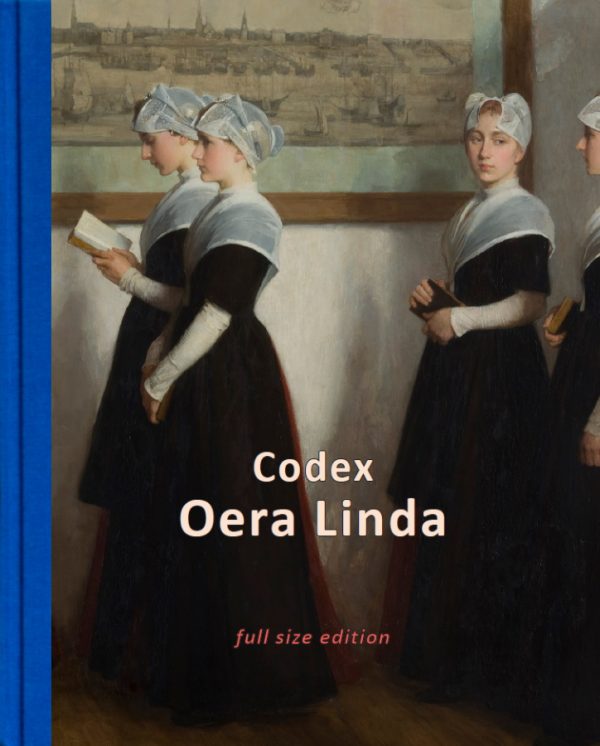CODEX
OERA LINDA

'Our understanding of what happened more than seven hundred years ago is based on little evidence. Much of it is assumption and interpretation, in line with traditions of scholarship. For ages, religious institutions decided what manuscripts were worth and permissible to be saved and made public. There will still be treasures hidden in private collections or forgotten archives. One and a half centuries ago, this will have been more true than today.
In 1867, a manuscript surfaced in the Netherlands. It seemed to be a 13th century copy of an older original, in unusual lettering and containing laws and histories from an era before our year zero. Its contents puzzled the few who got to see it. Was this too good to be true? Or would it have been recognized as a potential threat to the then monarchist-protestant state?
Five years later, the first translation was published as “Thet Oera Linda bok”, named after the Oera Linda clan that seemed to have initiated the manuscript and preserved it through the ages. Even before publication, the verdict had already been pronounced in newspapers and magazines: it had to be fake and anyone who thought otherwise was a fool. In 1876, the first and only ‘evidence’ against authenticity was presented: it could not be authentic, because its language would be ‘gibberish’. However, some of the most prominent Old Frisian specialists judged very differently.
In 1938, the controversial manuscript was donated to the Frisian provincial library by the then owner, Cornelis Over de Linden IV (1883-1958), who trusted that his donation would finally lead to proper study of the document and its contents. Until today, this never happened. The library states that it is “commonly believed to be a forgery”, but substantiation of this belief is hard to find. The main ‘evidence’ seems to be the fact that scholars do not take it seriously… Asking the question if the manuscript or its contents could be authentic after all seems to have been taboo in Dutch academia since the late 1870s.
On December 14, 2020, the Oera Linda Foundation was registered, with the purpose to promote research on, translations of, and publications about the manuscript (or codex) known as the Oera Linda-book. The document begins with a letter of instruction, dated 1255 AD by the last known copyist of the writings, Hidde Oera Linda, who briefed his son Okke to also make a copy “so that they will never be lost”.
The foundation’s first publication, ‘Codex Oera Linda’, is intended to be the modern version of such a new copy. It contains a new transliteration and an English translation of the original texts, with an index of proper names and a suggested alternative reading order. It can finally replace the only English edition thus far from 1876 by William Sandbach, which was a translation of the first (1872) Dutch translation by Dr. Jan Ottema and which included a mutilated, so-called facsimile print of the pages with the wheel-based letters and numbers.
In our times, ever more people learn to make up their own minds about issues relevant to them. For those interested in our deepest roots, the origin of our language and consciousness — in particular our innate desire for freedom, truth and justice — Codex Oera Linda may provide a wealth of inspiration.'
https://oeralinda.nl/about-oera-linda/